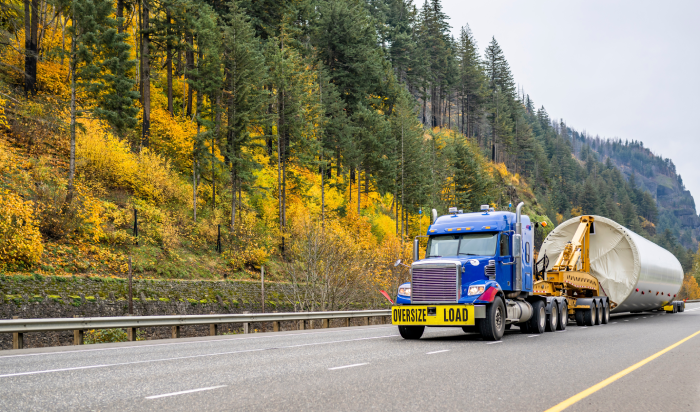Navigating city streets or highways often means encountering oversized trucks. These behemoths of the road play a crucial role in transporting goods across vast distances, but their size and weight present unique challenges for other motorists. Understanding how to safely share the road with oversized trucks is not just about convenience—it's about ensuring the safety of everyone on the road.
What Are Oversized Trucks?
Oversized trucks, also known as big rigs or tractor-trailers, are vehicles designed to transport large quantities of goods over long distances. These trucks typically consist of a tractor unit (the cab where the driver sits) and a trailer or trailers attached to the rear. They are distinguished by their significant size and weight, often exceeding the dimensions of standard passenger vehicles.
Key features of oversized trucks include:
- Size and Dimensions: They can range in length from 40 to 53 feet or more, with a height of up to 13.5 feet and a width of around 8.5 feet.
- Weight: Depending on the cargo and configuration, they can weigh up to 80,000 pounds or more when fully loaded.
- Purpose: They are essential for transporting goods across interstate highways and urban areas, supporting industries ranging from retail to manufacturing.
Regulations and Permitting for Oversized Loads
In the United States, oversized trucks must adhere to strict guidelines governed by state and federal authorities. These regulations typically dictate maximum allowable dimensions for height, width, and length, as well as weight limits. Transporting oversized loads often requires special permits obtained from state transportation departments, which outline specific routes, times of travel, and safety precautions. Permits may also stipulate requirements such as escort vehicles, signage, and advance notice to authorities. Compliance with these regulations helps minimize risks associated with oversized loads, including potential damage to roads, bridges, and other infrastructure, while ensuring the safety of all road users.
Increased Dangers of Sharing the Road
Sharing the road with oversized trucks presents heightened dangers due to their size, weight, and handling characteristics. These vehicles require significantly more space to maneuver and have larger blind spots compared to standard passenger vehicles. Their extended length and width can make passing and merging more challenging for other motorists. Additionally, oversized trucks have longer stopping distances, which can lead to rear-end collisions if drivers of smaller vehicles misjudge braking capabilities. Moreover, strong crosswinds can affect stability, posing risks during inclement weather. Awareness of these dangers is crucial for all drivers to mitigate risks and ensure safe interactions with oversized trucks on the road.
Common Causes of Oversized Truck Accidents
When it comes to accidents involving oversized trucks, several factors often come into play, including:
- Driver Fatigue: Long hours on the road can impair reaction times and decision-making.
- Vehicle Maintenance Issues: Problems like brake failures or tire blowouts can lead to dangerous situations.
- Inexperienced Drivers: Handling the complexities of large vehicles requires skill and experience.
- Cargo Problems: Improperly loaded or unsecured cargo can cause instability or spillage.
- External Factors: Adverse weather conditions, road construction, and blind spots affecting visibility add to the risk.
Understanding these common causes underscores the need for comprehensive safety measures and adherence to regulations to prevent accidents involving oversized trucks.
What to Do After an Oversized Truck Accident
Experiencing an accident involving an oversized truck can be overwhelming, but taking immediate steps can help protect yourself and your legal rights:
- Ensure Safety: Check for injuries and move to a safe location if possible.
- Call Emergency Services: Report the accident and request medical assistance if needed.
- Gather Information: Exchange contact and insurance details with the truck driver and any witnesses. Take photos of the accident scene, including vehicle damage and road conditions.
- Document Everything: Note down the truck's license plate number, company information (if visible), and the driver's commercial license details.
- Seek Medical Attention: Even if injuries seem minor, get checked by a healthcare professional.
- Report to Authorities: File a police report and obtain a copy for your records.
- Consult Legal Help: Contact a personal injury attorney experienced in handling truck accidents to understand your legal options and protect your interests.
These steps can provide crucial support for insurance claims and potential legal proceedings following an oversized truck accident.
BCH Law | Protecting Your Loved Ones on the Road
At Bailey Cowan Heckaman PLLC, we are committed to advocating fiercely for truck accident victims. Our mission is to secure the maximum compensation possible for our clients, ensuring they receive the justice they deserve. If you or a loved one has been injured in a truck accident in Houston or anywhere across Texas, contact us today at (713) 909-7910 for a complimentary consultation.

